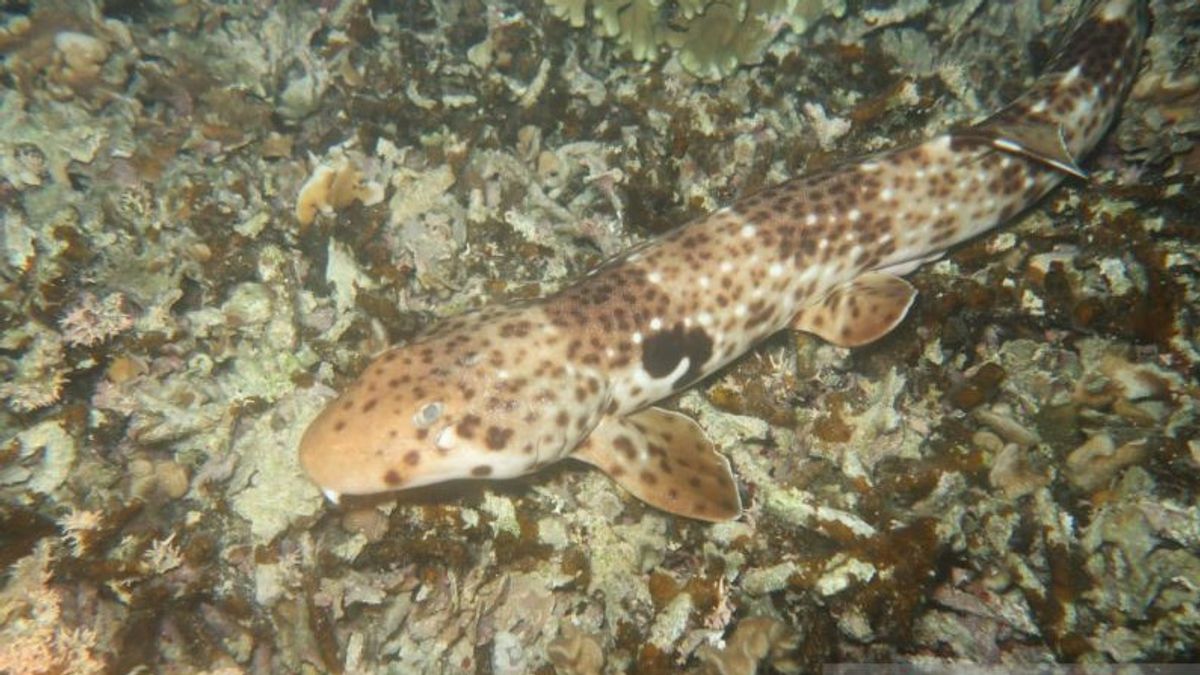JAKARTA - The Ministry of Maritime Affairs and Fisheries (KKP) has set a full protection status for walking sharks (Hemiscyllium spp), as an effort to maintain and ensure the existence, availability, and sustainability of species whose populations have tended to decline in recent years.
The walking shark is one of the 20 priority fish species for MMAF conservation for 2020-2024. The decline in population and the threat of vulnerability and scarcity of this walking shark species is a consideration for the need to make policies for the management of fish resources.
"Moreover, this fish has a small range size/population, so it is vulnerable to extinction," said Director General of Marine Spatial Management (Ditjen PRL) Victor Gustaaf Manoppo in a written statement received in Jakarta, Antara, Wednesday, February 22.
Based on an assessment in 2020, he continued, all walking shark species have been included in the red list of The International Union for Conservation of Nature (IUCN) because of their vulnerability and rarity.
Two species of sharks even walk into the almost threatened category, three species are categorized as vulnerable, and one species has the least concern category.
The walking shark of the genus Hemiscyllium is an endemic species found in the waters of Papua, West Papua, Maluku, North Maluku, Papua New Guinea, and Australia. There are nine species of sharks running to date in the world, six of which are found in Indonesian waters.
The decision regarding the full protection status of the Walking Shark is contained in the Decree of the Minister of Maritime Affairs and Fisheries (Kepmen KP) Number 30 of 2023 concerning Full Protection of Walking Sharks which was signed by the Minister of Maritime Affairs and Fisheries, Sakti Wahyu Trenggono at the end of last January.
Meanwhile, the Director of Conservation and Marine Biodiversity, Firdaus Agung, said that after the shark protection status was determined, the Ministry of Maritime Affairs and Fisheries would socialize its protection status to the public and develop a national conservation action plan.
The English, Chinese, Japanese, Arabic, and French versions are automatically generated by the AI. So there may still be inaccuracies in translating, please always see Indonesian as our main language. (system supported by DigitalSiber.id)








